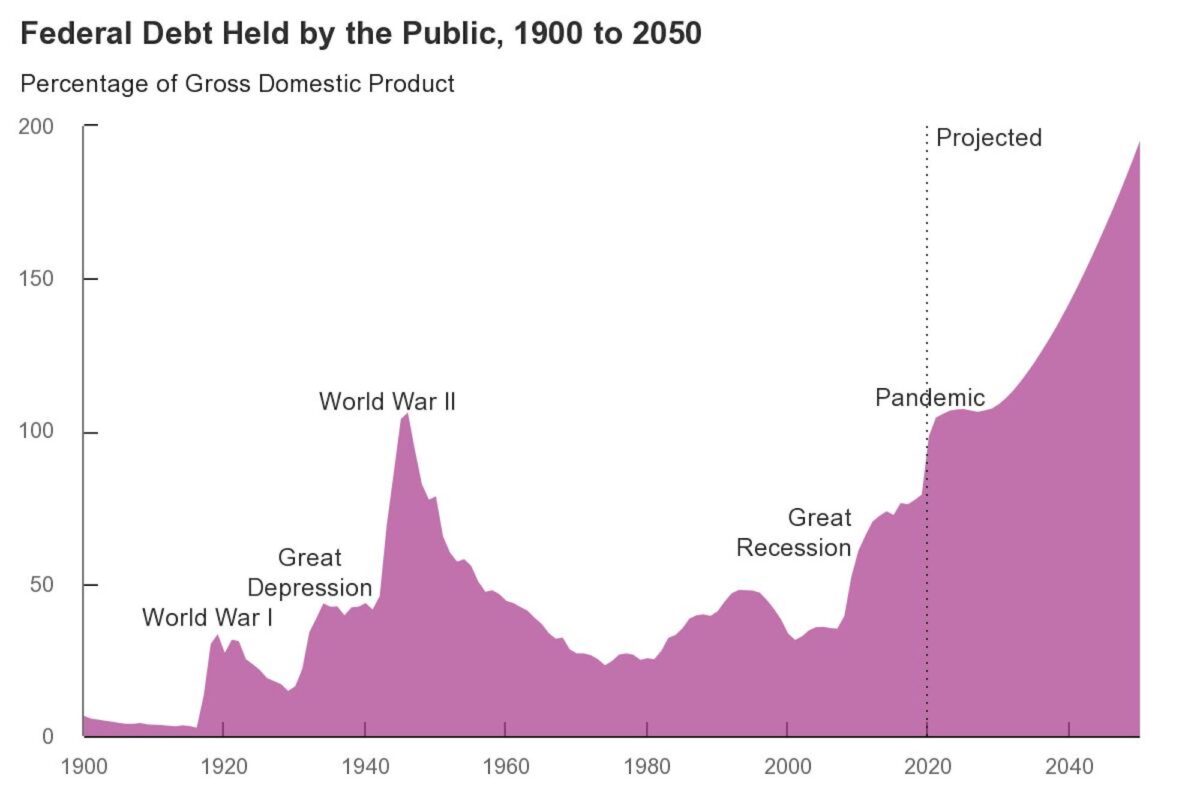CBO Downgrades Americas Long-Term Economic Growth Projections
Americas economy is projected to grow more slowly in coming decades than previously forecast, due in..
Americas economy is projected to grow more slowly in coming decades than previously forecast, due in large measure to the impact of the CCP virus, according to the Congressional Budget Office (CBO).
The CBO, a non-partisan agency that produces economic and budgetary analyses to support the congressional budget process, on Monday released its newest long-term debt and growth projections through 2050. They show higher than previously expected levels of federal debt and weaker growth.
“In CBOs extended baseline projections, growth in potential (or maximum sustainable) GDP over the next 30 years is slower than it has been over the past 50 years. From 2020 to 2050, real potential GDP increases at an average rate of 1.6 percent per year, whereas it grew at an average annual rate of 2.8 percent from 1969 to 2019,” the CBO said in its report.
The current projection of 1.6 percent average annual growth through 2050 is over a quarter percentage point lower than the CBO forecast in June 2019, the previous most recent long-term forecast (pdf), which anticipated GDP to grow at 1.9 percent per year, on average. Last years projections came before the CCP (Chinese Communist Party) virus, swept across the nation, sparking a sharp recession and depressing output.
“In the first quarter of 2020, the coronavirus pandemic ended the longest economic expansion in U.S. history and triggered the deepest downturn in output and employment since the demobilization following World War II,” the CBO said in its report, noting that while some factors that it incorporates into its long-term economic forecast, like demographics and productivity, will not be impacted by the outbreak, others will.
“Although many of those trends are unaffected by the pandemic, some may be affected in ways that could have persistent effects on output. For instance, a significant loss of effective schooling among todays children would have lasting negative effects,” the CBO wrote.
A recent intergovernmental agency that works to stimulate economic development has warned that pandemic-related disruption to schools could cost Americas economy around $15 trillion in lost output over the rest of the century.
The Organization for Economic Cooperation and Development (OECD), which besides the United States includes 36 member countries, said in a Sept. 8 streamed press conference and accompanying report (pdf) that researchers found a significant “corona-induced loss of skills” as schools closed to curb the spread of the virus. The agency concluded that the pandemic-related interruption to education would, over the remainder of the century, cost the U.S. economy 1.5 percent of GDP.
The CBO also said debt as a share of GDP is forecast to hit 195 percent by 2050, 45 percentage points higher than the agency projected in June 2019, with the rise largely due to federal relief spending and, later, by rising interest rate costs and increased outlays on safety-net programs as the population ages.
“High and rising federal debt makes the economy more vulnerable to rising interest rates and, depending on how that debt is financed, rising inflation. The growing debt burden also raises borrowing costs, slowing the growth of the economy and national income, and it increases the risk of a fiscal crisis or a gradual decline in the value of Treasury securities,” CBO noted in its report.
 Federal debt held by the public between 1900 and the present day, along with projections through 2050. (Congressional Budget Office)
Federal debt held by the public between 1900 and the present day, along with projections through 2050. (Congressional Budget Office)“Those challenges are daunting,” CBO Director Phillip SwagelRead More – Source

